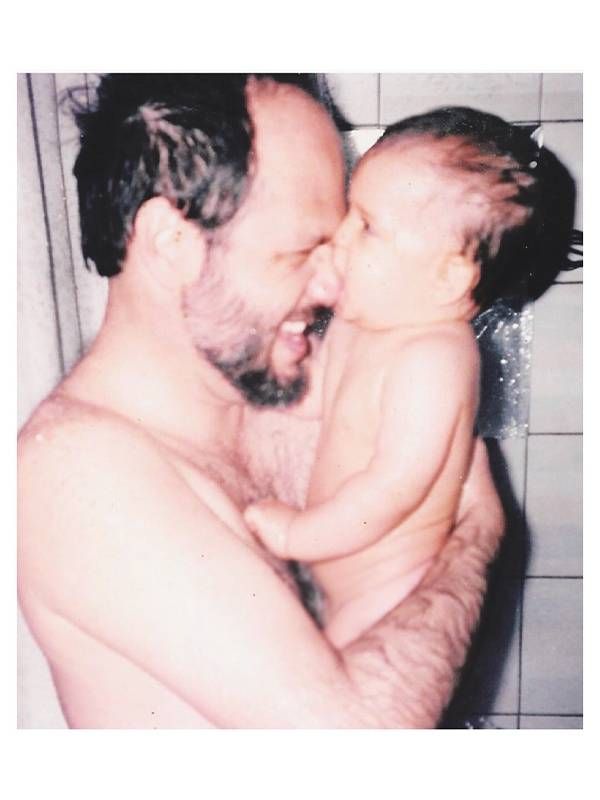On Being a Latina and Millennial Caregiver
When my cultural heritage intersected with my caregiving role, I gained a multifaceted perspective on my identity
As a born and raised Costa Rican, my Latinx background has undoubtedly shaped and inspired a meaningful part of my personal, social and intellectual self-identity. This complex, lived-in human blueprint has encouraged me to frequently assess and revisit my cultural role from an individual and collective understanding — and being a Latina caregiver has been at the heart of this ever-evolving individuality.

However, I had not considered myself a caregiver until recently, even after multiple intimate experiences of caring for a loved one in the past. As a teenager, I cared for both paternal grandparents, and in recent years, for my father, even while we were living in two separate countries.
As a teenager, I cared for both paternal grandparents, and in recent years, for my father, even while we were living in two separate countries.
Is this redefinition of being a caregiver impacted by the decade I was born into, my sociocultural background or a combination of both? Here's a brief and intimate reflection of what I've discovered so far.
What It Means to Be a Latinx Millennial Caregiver
I didn't know what a caregiver was until I moved to the U.S. at 18 to become a professional dancer. Yes, I had cared for my paternal grandparents before moving away from Costa Rica, but I had never realized that my function had a thorough, articulated description beyond my assumed understanding.
For most Latinx, being a caregiver is an expected endeavor deeply embedded within our culture's heterogenous scheme of values, beliefs and traditions. And being a Latina millennial caregiver comes with even more distinctive challenges and pressures at the crossing between gender, culture and societal criteria (hello, women's oral history).
As a female Latinx caregiver, one is likewise expected to honor intricate cultural patterns and expectations while navigating the reality of being a woman in today's world.
One intriguing historical convention across several Latinx communities that echoes this compendium of societal standards is that of the unmarried daughter.
For a millennial caregiver, there is often an added pressure to balance caregiving with other responsibilities, such as starting a family, buying a home, pursuing higher education or advancing a career. Unsurprisingly, these aspirations may be put on hold or even derailed when caring for an older or ill relative, although that's not necessarily a norm.
One intriguing historical convention across several Latinx communities that echoes this compendium of societal standards is that of the unmarried daughter (either the oldest or youngest in her family), restrictively destined to care for aging parents as her life's ultimate aspiration. The 1992 movie "Like Water For Chocolate" perfectly depicts this interaction between Latinx roles, titles, and cultural standards.
My experience as a caregiver has also been deemed unavoidable and expected in Costa Rica, and I'm confident that my gender plays an important role. Repeatedly, these expectations are so woven into the Latinx cultural fabric that they go unspoken and unquestioned, and acknowledging these dynamics have been vital to my overall self-understanding.
Being a Latina millennial caregiver comes with unique challenges at the junction between gender, culture and society.
Caring for my father in the past three years, both at a distance and in person, for instance, has entailed everything from shopping and hygiene care to medical advocacy and medication monitoring.
I've been present throughout his medical issues and continue to be mindful of his daily needs while attending to my life rhythms in New York City.
And I do so because it's my choice, and I feel joy while doing so, but of course, I can't help but wonder why my older, non-millennial siblings aren't as involved as I am. Embedded gender roles again, perhaps?
Back to Latinx Older Adults
Latinx culture intensely emphasizes respect, admiration and reverence for older adults, which can compound the tension of being a female caregiver and add a profound obligation to provide superior care and show esteem and appreciation for the loved one we are supporting.

Caring for older or ill relatives in Latinx families is a widely accepted and anticipated cultural norm. Family constituents are expected to care for each other, so hiring a professional caregiver is often only a viable cultural/monetary alternative for some.
In Latinx families, caring for a loved one is seen as a way to bring family members closer together and provide a feeling of realization and dignity. It can also allow younger generations to learn from older adult members, connect to their cultural heritage and gain invaluable intergenerational life experience (a crucial cultural expectation among Latinx communities).
These values and beliefs are instilled in younger generations early and passed down from generation to generation like a fundamental pillar of our shared Latinx identity.
Latinx Caregivers In the Field
Latinx caregivers bring a unique outlook to the caregiving and health care domains, drawing on their lived-in experiences to provide culturally-informed care. Many have firsthand backgrounds and expertise in caring for older family members and loved ones; they often understand family dynamics, traditions and social behaviors as part of the rich cultural Latinx lineage.
It is also paramount for Latinx caregivers to prioritize self-care, foster healthy relationships and boundaries, and find ways to balance their caregiving commitments with their own needs and goals.
This knowledge helps Latinx caregivers establish a strong bond with their loved ones, creating an atmosphere of warmth and familiarity that enhances the care they provide.
Nonetheless, it is also paramount for Latinx caregivers to prioritize self-care, foster healthy relationships and boundaries, and find ways to balance their caregiving commitments with their own needs and goals.
In my experience as a Latina caregiver, I advocate for Latinx millennials in a caregiving role to seek assistance and help from their community, family, friends and mental professionals, as needed. Many communities have support groups (many of them bilingual) that offer caregivers accessible resources, advice and emotional aid.
Tapping into these resources is a non-negotiable part of being a caregiver beyond any cultural scenario. Don't we owe it to ourselves and our loved ones to strive for optimal well-being?
A Final Thought
There are endless factors and layers of awareness weaving together the threads of Latinx culture — social norms, gender, race and beyond. Is it demanding to be a caregiver regardless of one's heritage? Unquestionably, sharing these phenomenological experiences, such as my individual stance, is pivotal to elevating the dialogue on what it takes to be a caregiver today.
Latinx culture can add a coating of complexity to the caregiving experience, as it certainly did for me. Nevertheless, with the right tools, support and education, invaluable gifts, wisdom and life-enhancing skills can be gained.
If you seek further direction, resources, and encouragement, please follow Caregiving in America: The 24/7 Caregiver, where we promote an inclusive and comprehensive space for caregivers and offer stories about innovative research while elevating dialogues focused on the core of caregiving.


